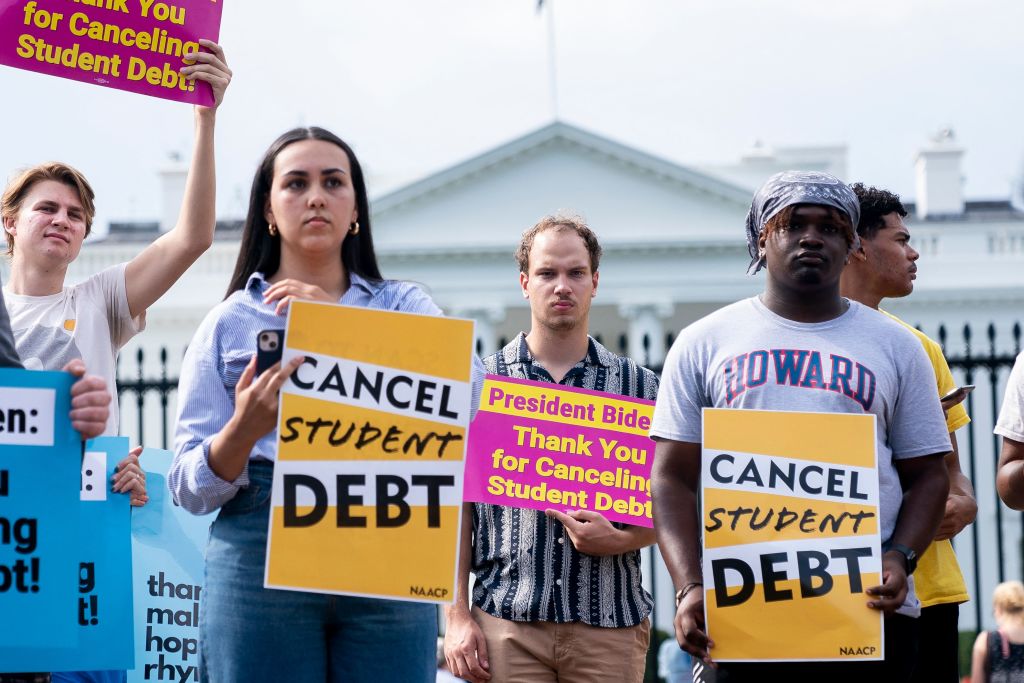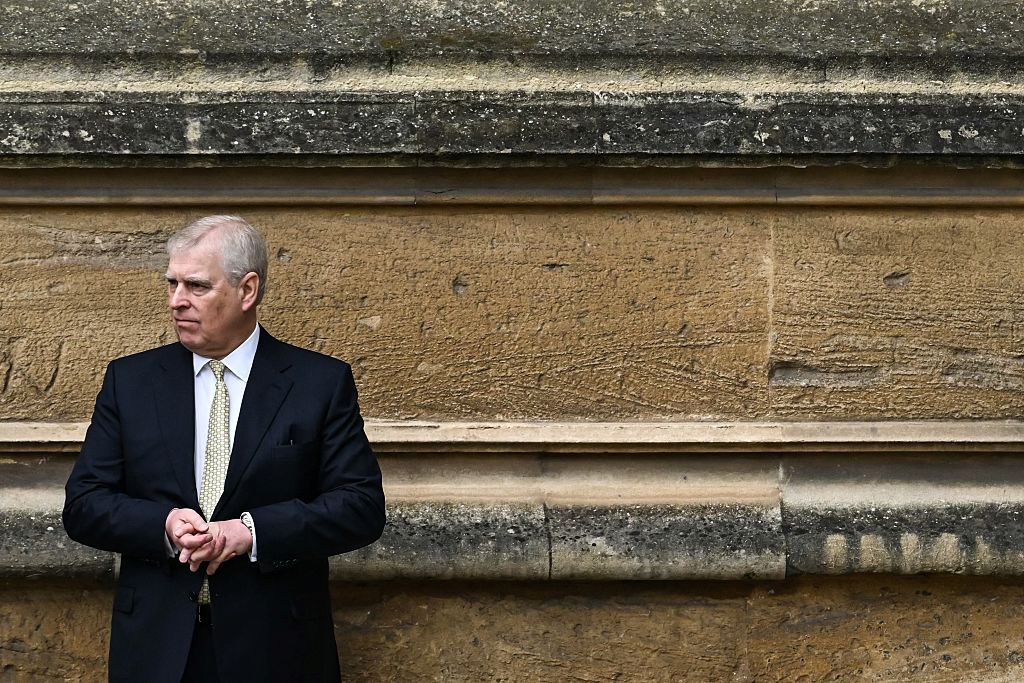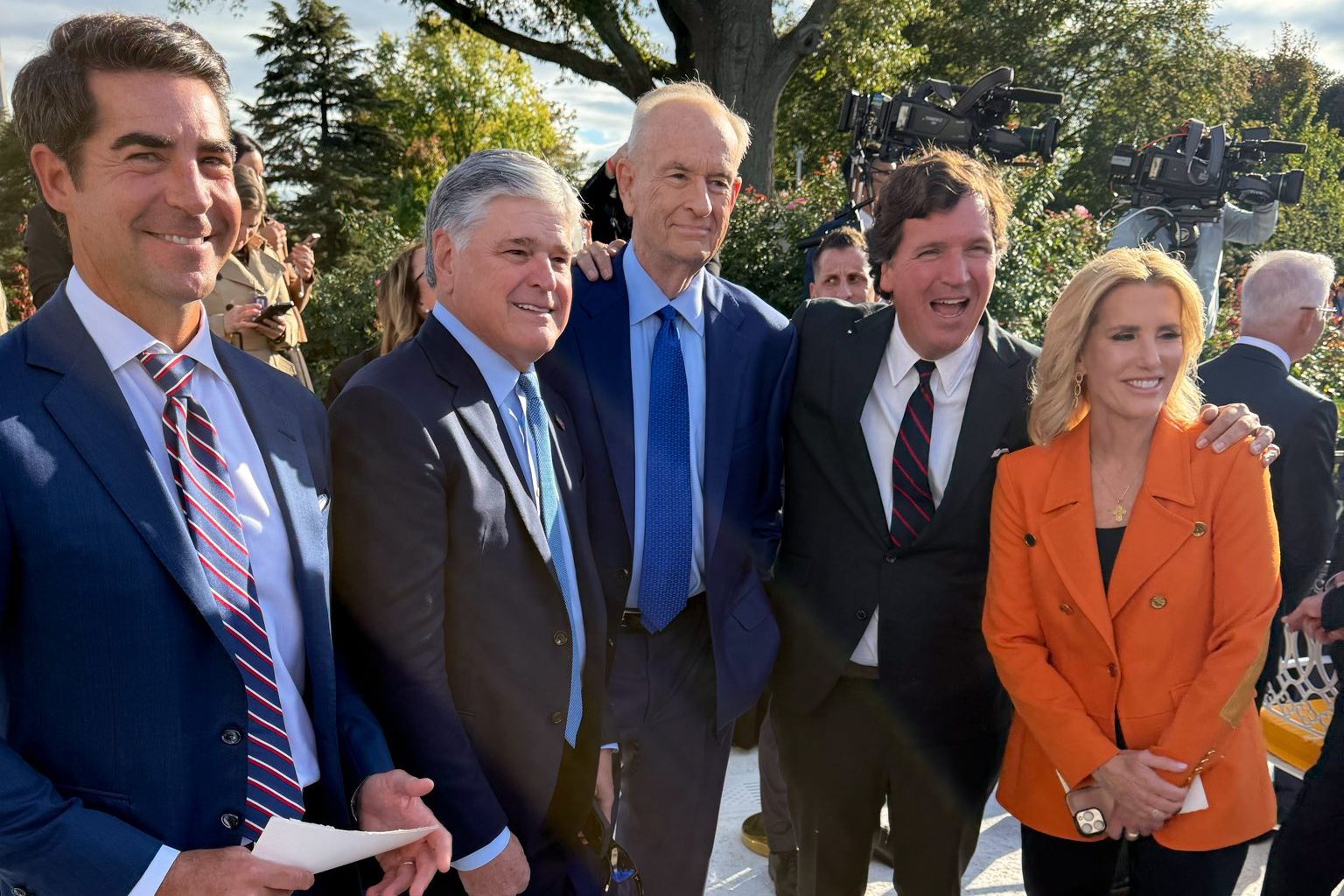Biden’s student debt gamble is about 2024 — not 2022
Two days on from Biden’s student debt announcement and any level-headed political cost-benefit analysis of the move would not make for pretty reading in the White House. After months of umming and aahing over the move, the administration’s rollout of the measure is strikingly undercooked.
Press secretary Karine Jean-Pierre struggled to give remotely satisfactory responses to the main objections in yesterday’s briefing. She could not say how much debt forgiveness would cost. She struggled to explain the legal basis for the executive action. Asked why affluent lawyers were included, or queried on the basic unfairness of the measure for those who paid off their debts, she could do little more than filibuster and waffle.
Missing from the rollout: any kind of positive, serious, substantive case for the measure proposed. Part of the explanation for that absence is, I suspect, a White House assumption that money talks. The target audience don’t need to hear the arguments for debt forgiveness. They just need to cash the check.
Plenty of blue-on-blue pushback has poured into the void created by the White House. Former Obama advisor Jason Furman was hardly ambiguous in his denunciation of the policy. “Pouring roughly half trillion dollars of gasoline on the inflationary fire that is already burning is reckless,” he said. “Doing it while going well beyond one campaign promise ($10k of student loan relief) and breaking another (all proposals paid for) is even worse.”
Elected moderate Democrats may be a little more polite, but their disapproval is no less obvious. Ohio Senate candidate Tim Ryan said the measure “sends the wrong message to the millions of Ohioans without a degree working just as hard to make ends meet.” Nevada senator Catherine Cortez Masto said that Biden’s measure “doesn’t address the root problems that make college unaffordable.”
One thing the Democrats voicing their dissatisfaction tend to have in common? Involvement in a tight midterm race. That tells you all you need to know about the extended political impact of the move.
The GOP has already rolled out its debt cancellation-themed attack. A new TV hit from the American Action Network delivers exactly the message you’d expect — and that has the likes of Ryan and Cortez Masto so nervous. It points out the inequity of taxes paid by blue-collar workers going to the pockets of white-collar graduates. A mechanic, a landscaper and a waitress talk to camera and explain just how happy they are to be working hard to pay off wealthy graduates’ debts. “Biden’s right,” one of them says, “you should take my tax dollars to pay off your debts. My family will figure out how to get by with less. What’s most important is we spare college graduates from any extra stress.”
How then to explain Biden’s seemingly self-defeating debt-forgiveness gambit? The answer, I think, lies not in 2022, but 2024 and the uncertainty surrounding a second Biden term. Before the president’s summer streak of political breakthroughs, many in his party — including many on the left — were reluctant to commit to supporting the idea of four more years of Biden. After a series of wins and an improving economic picture, Biden remains exceptionally unpopular and exceptionally old. And Biden’s own case for his presidency depends on little more than his over-the-top account of an extreme GOP set on the “destruction” of the country.
Behind the bravado — complete with a Ron Klain victory lap — Biden remains in a weak position within his own party. And so the college debt move is best understood as a downpayment on 2024: an attempt to shut the door to Biden’s left before anyone can open it. There is a reason the president hesitated over the college debt move for months. The political risks are obvious. But Biden is nothing if not an assiduous manager of internal Democratic Party politics. And that, not the midterms, was surely at the front of his mind as he mulled the move on a Delaware beach in recent weeks before deciding to pull the trigger.
*** Sign up to receive the DC Diary in your inbox here ***
Powell warns against complacency
As Democrats grapple with the very bad politics of debt cancellation, this morning brings some good economic news. The Commerce Department released data showing that consumer spending rose by 0.1 percent and personal incomes rose by 0.2 percent in July. Meanwhile, the PCE index — the Federal Reserve’s preferred measure of inflation — shows prices rises falling slightly from the historic highs of the previous month.
Not that any of this should be cause for complacency in the fight against inflation. In his highly anticipated Jackson Hole speech this morning, Federal Reserve chair Jerome Powell urged caution. “While the lower inflation readings for July are welcome, a single month’s improvement falls far short of what the Committee will need to see before we are confident that inflation is moving down,” he told the meeting of central bankers, emphasizing the risks of not acting decisively enough in response to rising prices. Powell’s hawkish tone triggered stock prices to tumble — and were, for those watching in Washington, a reminder that the US economy is by no means out of the woods.
Biden’s ultra MAGA hyperbole
Biden traipsed to Rockville, Maryland, all of half an hour from the White House, to kick off his midterm campaign Thursday. The president didn’t just stick to the “Ultra MAGA” hyperbole that we have come to expect from someone who long ago abandoned his commitment to unity. He went further than he has in the past, saying that “what we’re seeing now is either the beginning or the death knell of an extreme MAGA philosophy. It’s not just Trump, it’s the entire philosophy that underpins the — I’m going to say something — it’s like semi-fascism.”
What you should be reading today
James Kirchick: Bill Maher is saying what liberals are thinking
Peter Van Buren: Why does America have so many secrets?
Peter W. Wood: Nikole Hannah-Jones has taken over the history profession
Editorial Board, Washington Post: Debt forgiveness is an expensive mistake
Ruy Teixeira, Liberal Patriot: The Democrats’ shifting coalition
Bari Weiss, Common Sense: Bill Barr calls bullshit
Poll watch
President Biden job approval
Approve: 41.9 percent
Disapprove: 54.6 percent
Net approval: -12.7 (RCP Average)
Percentage of Americans who, when asked about their life circumstances, say they are ‘suffering’
July 2020: 3.4 percent
July 2021: 2.8 percent
July 2022: 5.6 percent (Gallup)

























